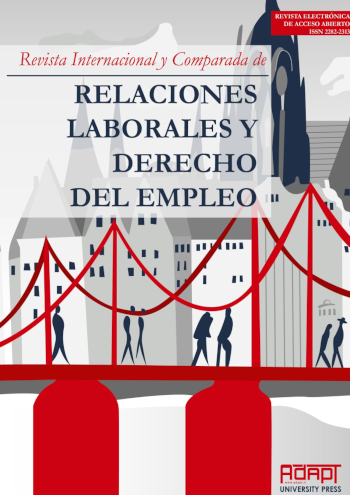Resumen
La crisis sanitaria de Covid-19 y sus efectos sobre el empleo han acelerado la puesta en marcha de un ingreso mínimo vital (IMV) como política destinada a corregir la vulnerabilidad económica y social. Mediante RD-L 20/2020, de 29 de mayo, se establece un mecanismo de garantía de ingresos de carácter estatal compatible con las distintas rentas básicas de las Comunidades Autónomas. La norma, aunque encuadrada dentro del art. 41 CE y el mandato de un régimen público de seguridad social que garantice prestaciones suficientes antes situaciones de necesidad, suscita diversos interrogantes, tanto en sus ámbitos subjetivo cuanto objetivo. Este artículo trata de reflexionar si el IMV, en un contexto de pandemia sanitaria, al asegurar un determinado nivel de rentas a todos los hogares en situación de vulnerabilidad, con independencia del lugar de residencia, supone un paso previo hacia una futura renta universal que tenga por objeto toda la ciudadanía o, por el contrario, hace retractarse de los fundamentos de dichas renta básica.
The Covid-19 health crisis and its effects on employment have accelerated the implementation of a vital minimum income as a policy aimed at correcting economic and social vulnerability. The Royal Decree-Law 20/2020, of May 29, established a state income guarantee mechanism compatible with the different basic incomes of the Autonomous Regions. Although the norm is framed within article 41 of the Spanish Constitution and the mandate of a public social security system that guarantees the benefits determined before the needs, there are questions in subjective and objective fields. This paper tries to reflect if determining a certain level of income for all households in a situation of restriction, regardless of the place of residence, supposes a previous step towards a future universal income that aims to all citizens or, conversely, it retracts from the fundamentals of basic income dimensions.

